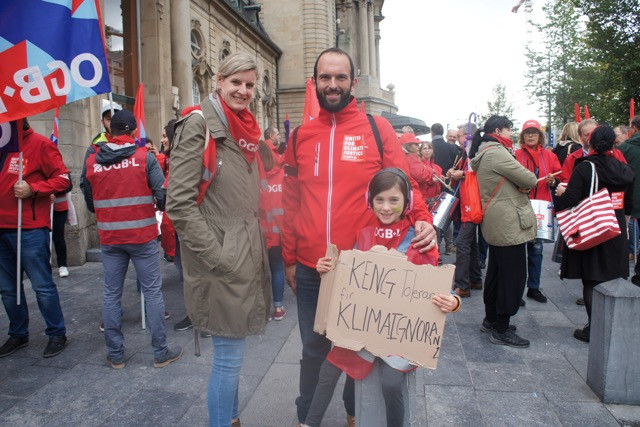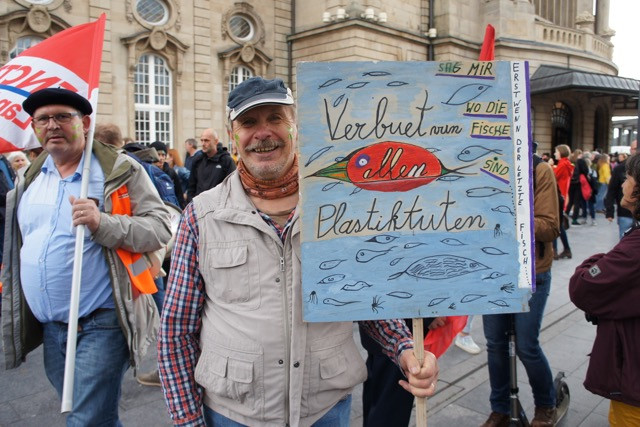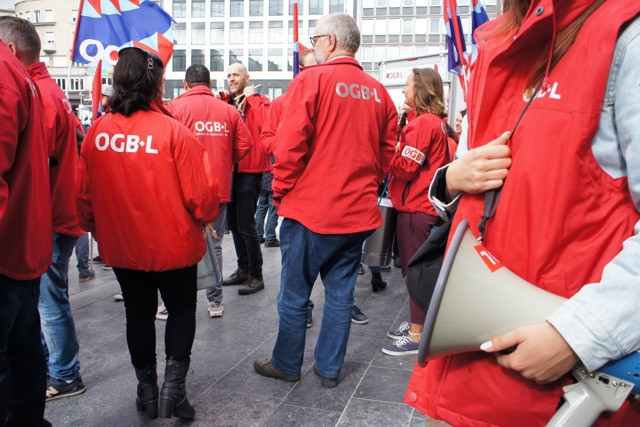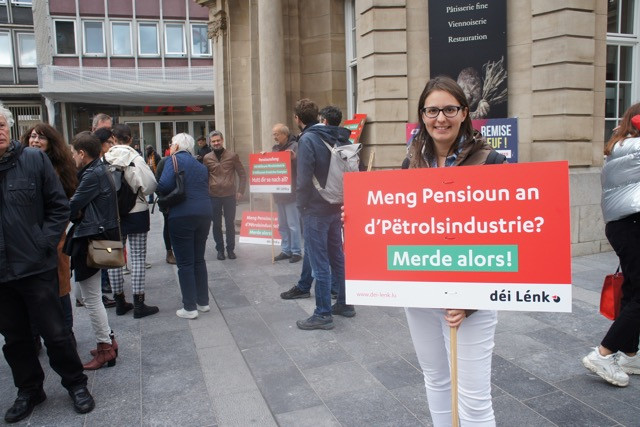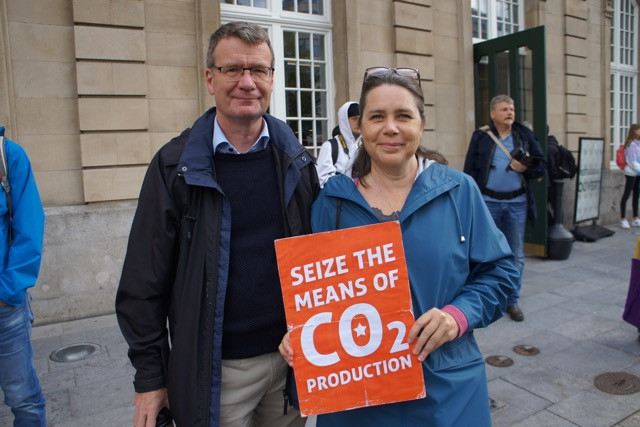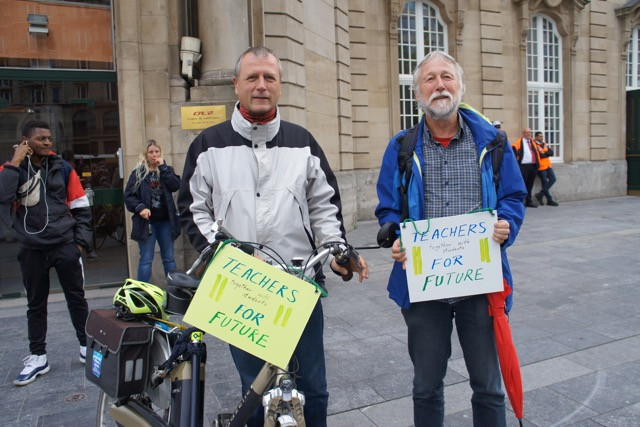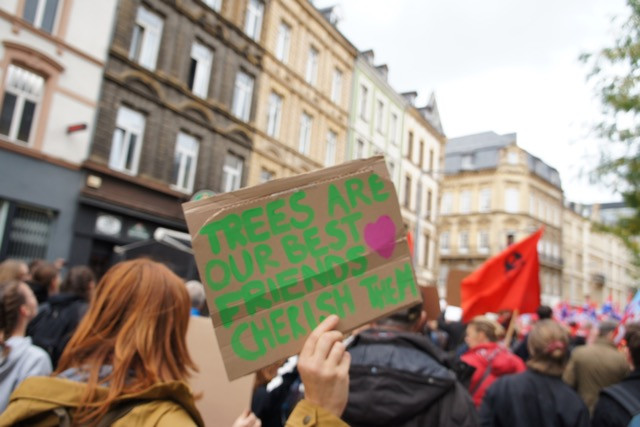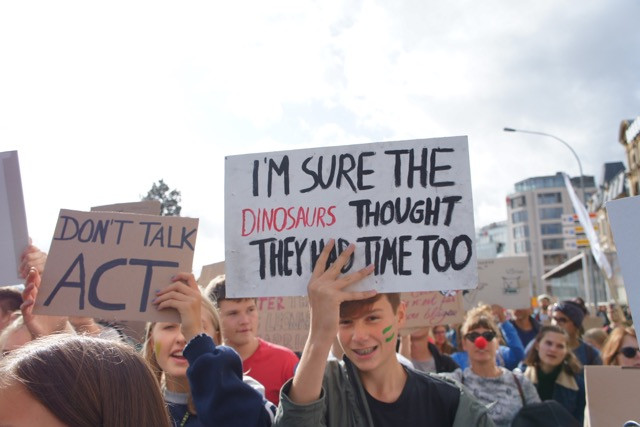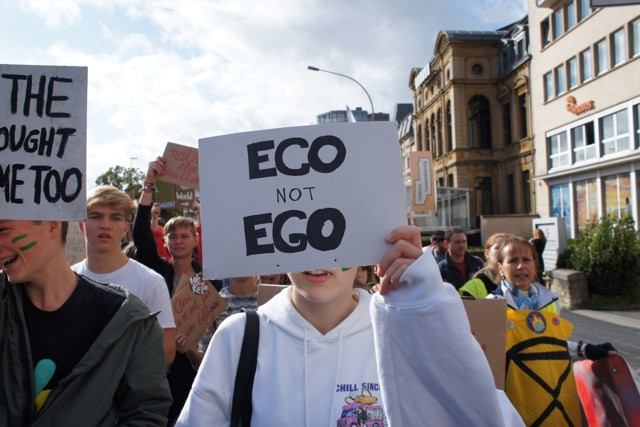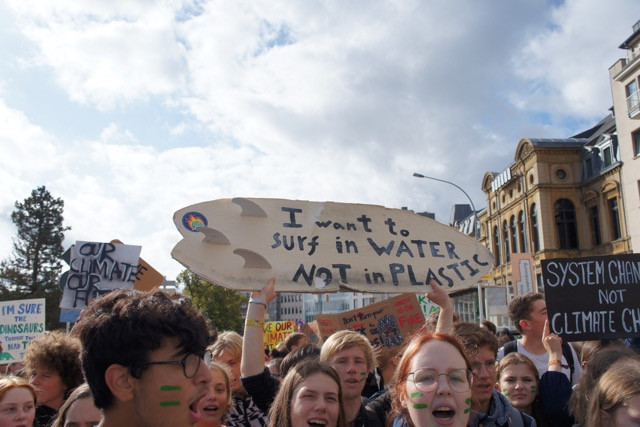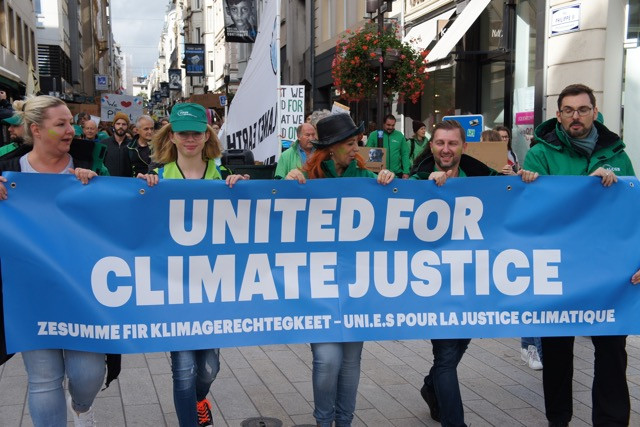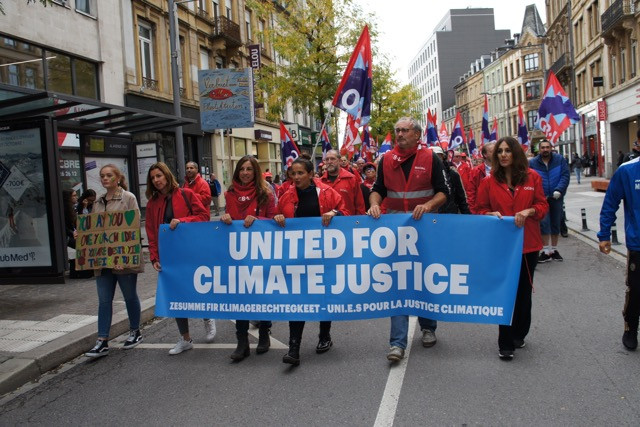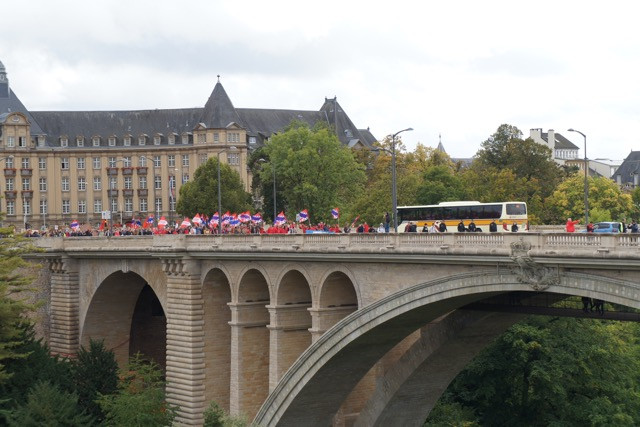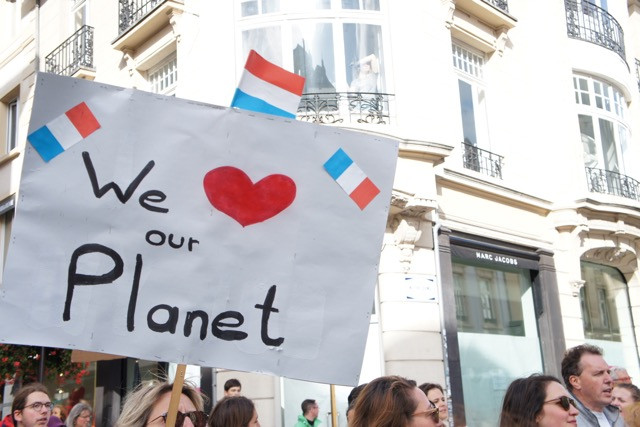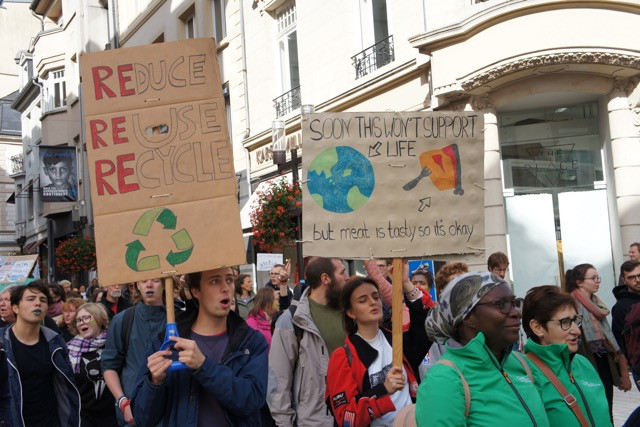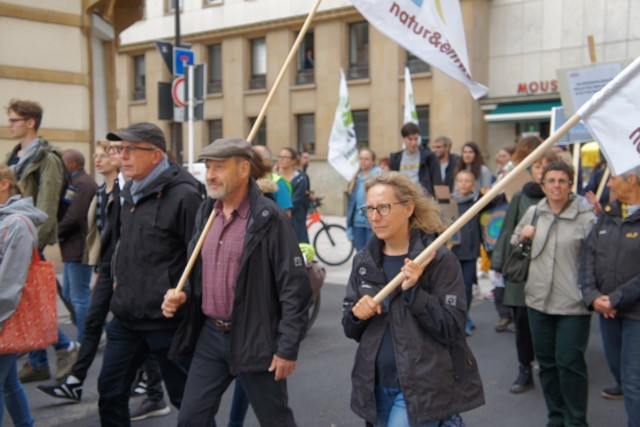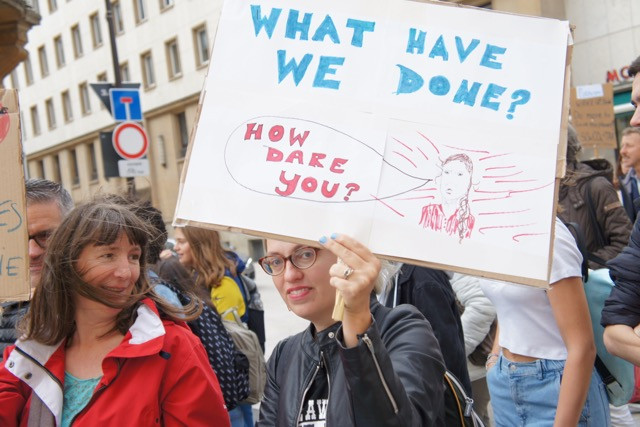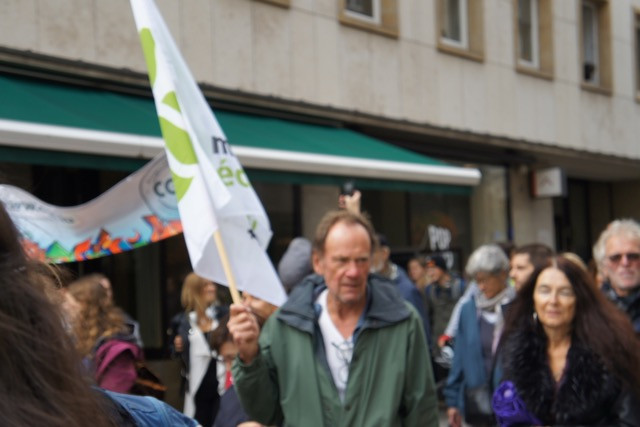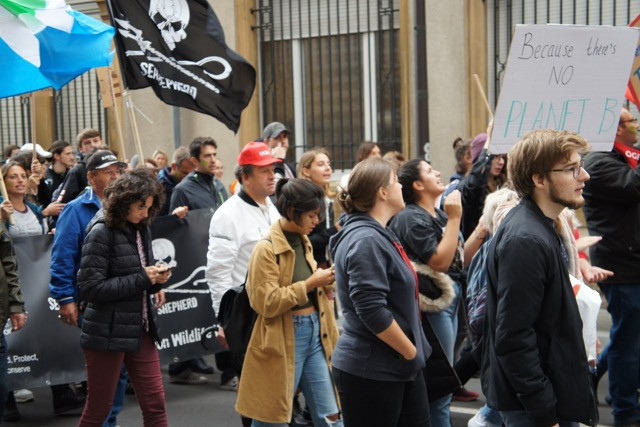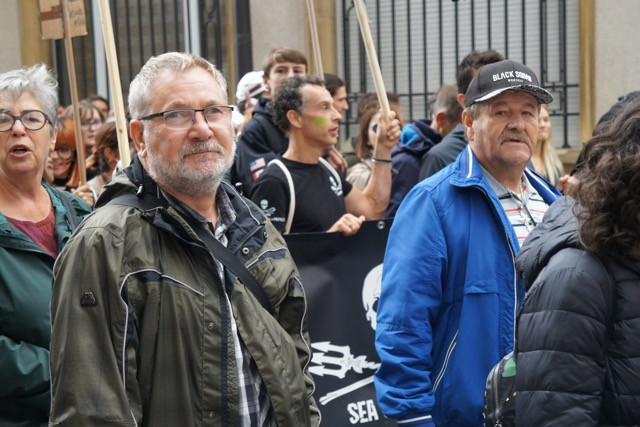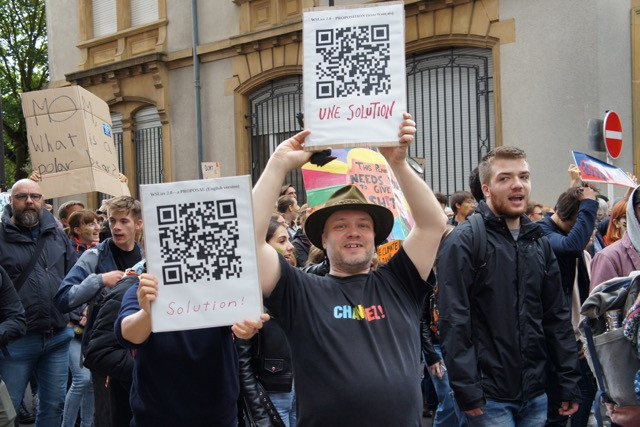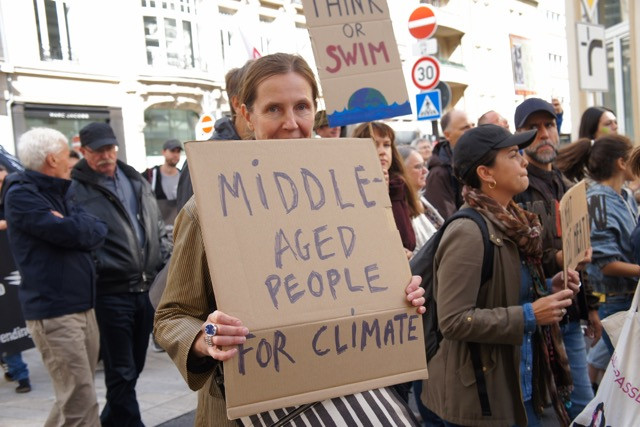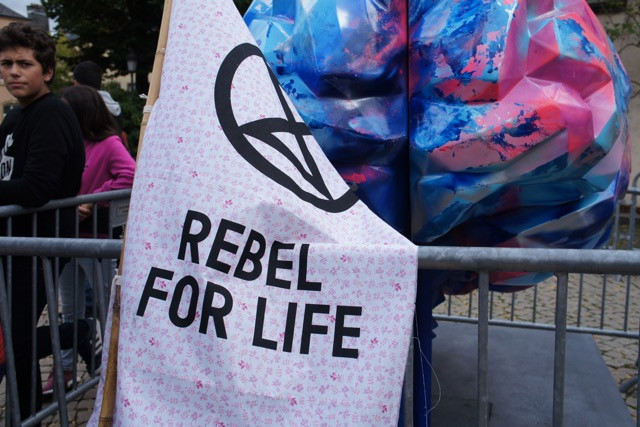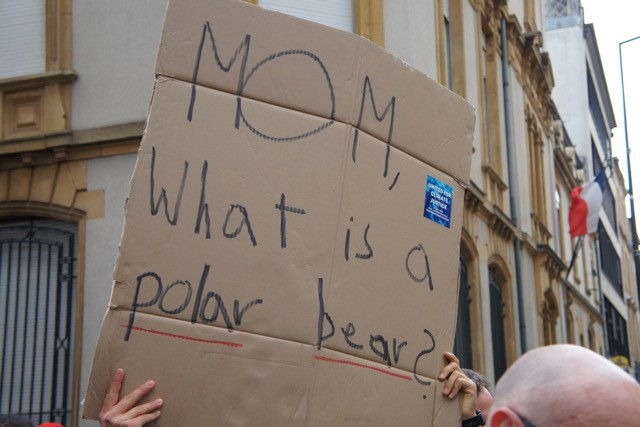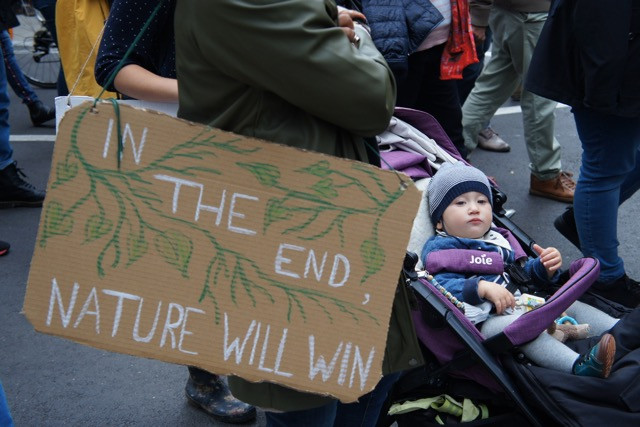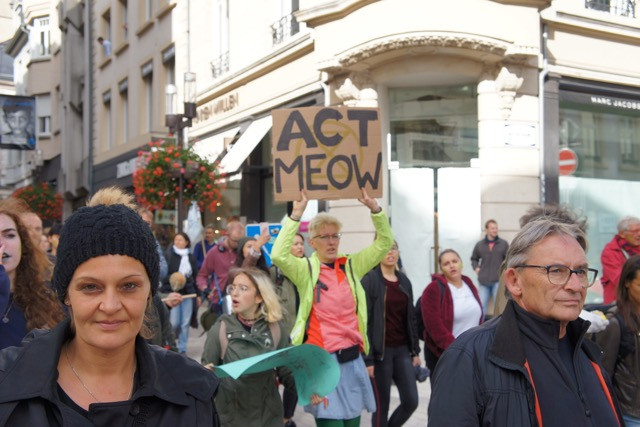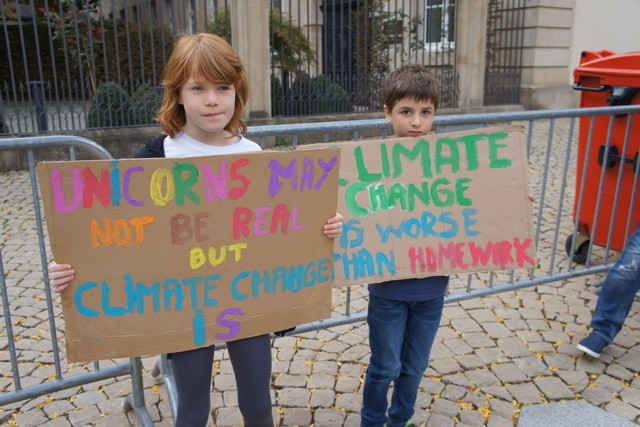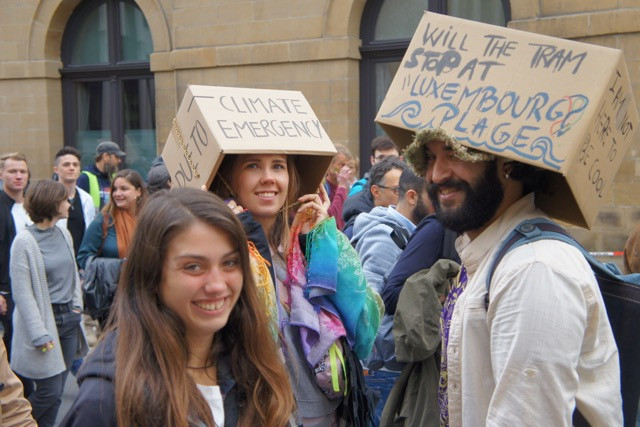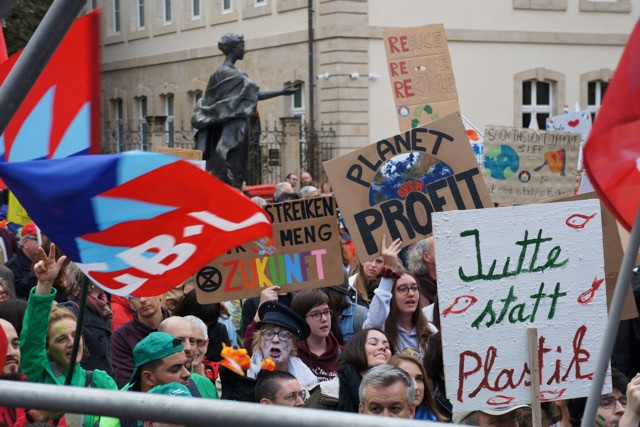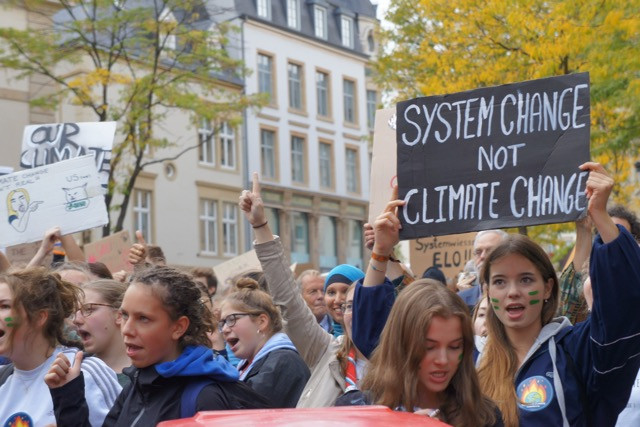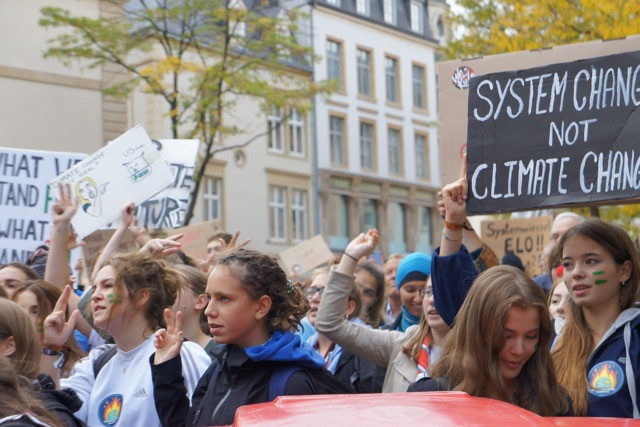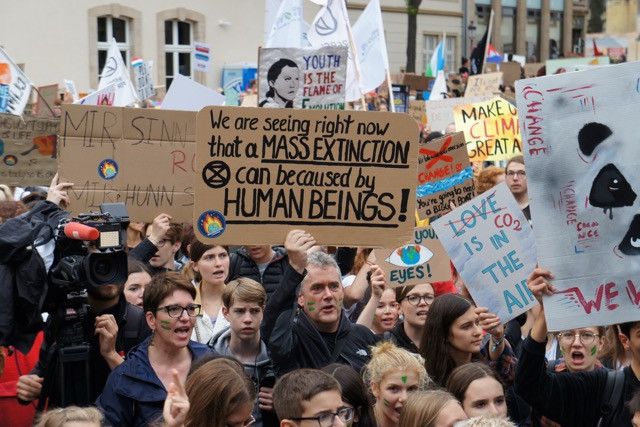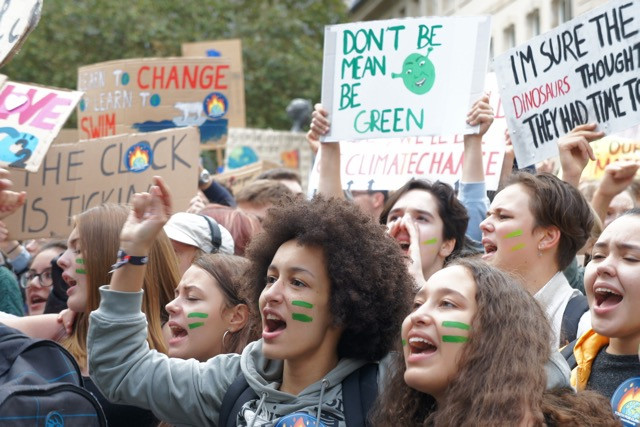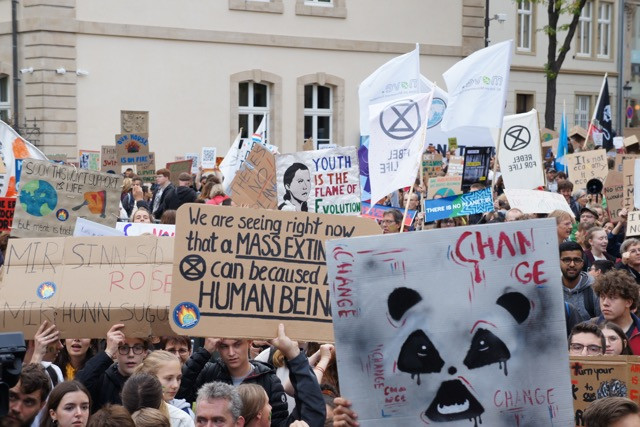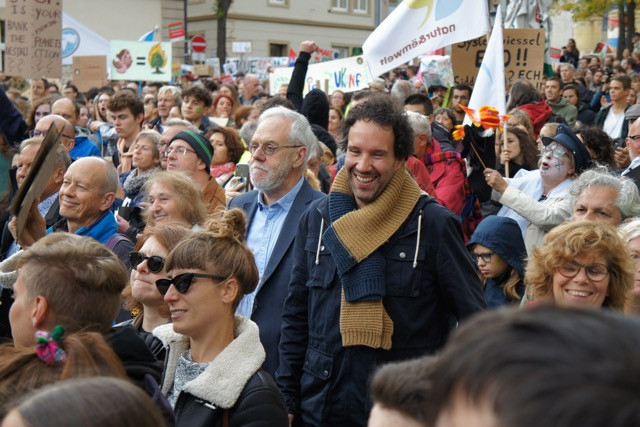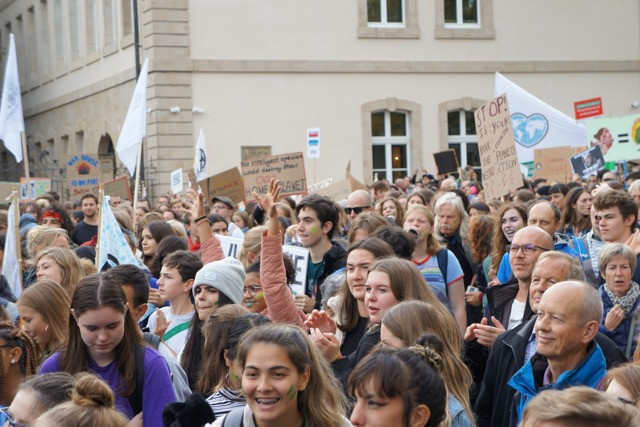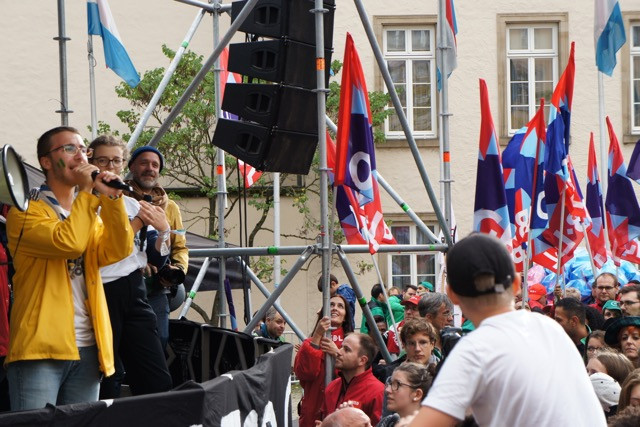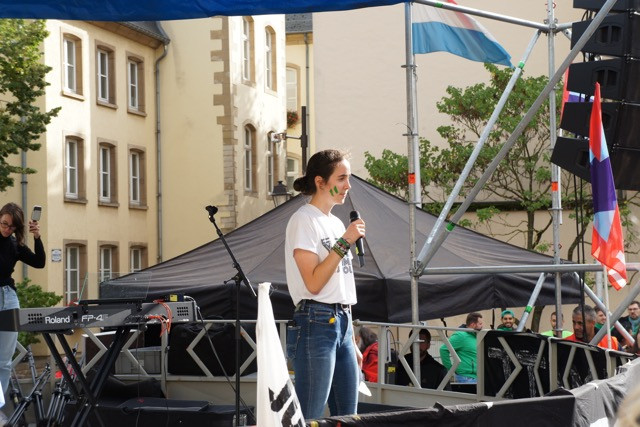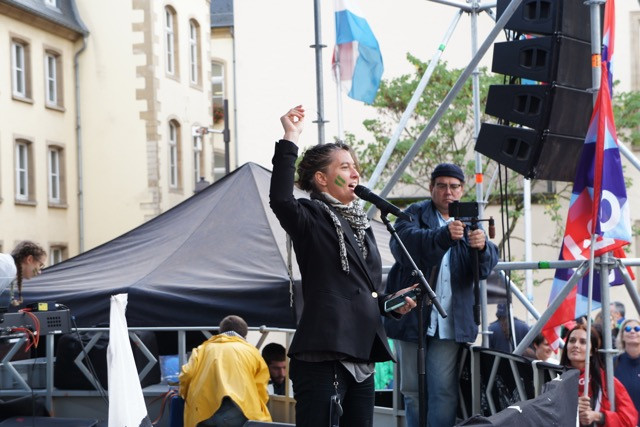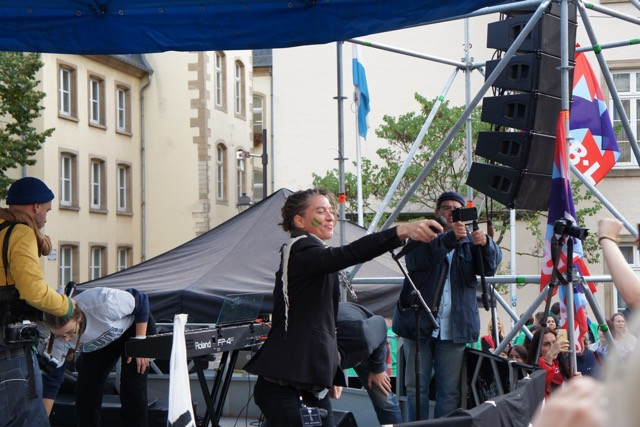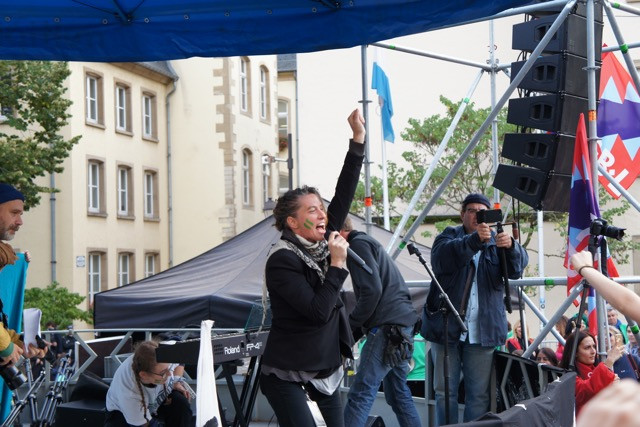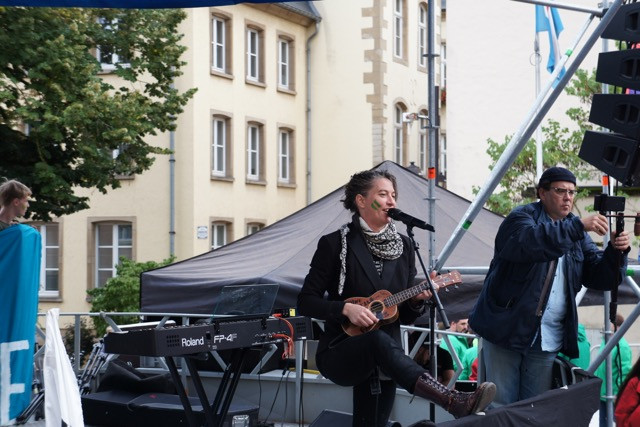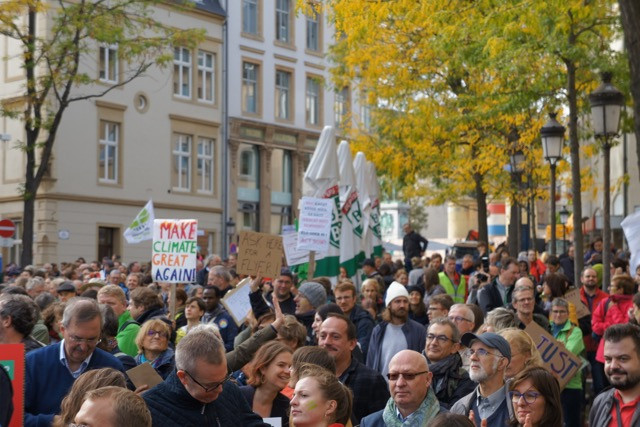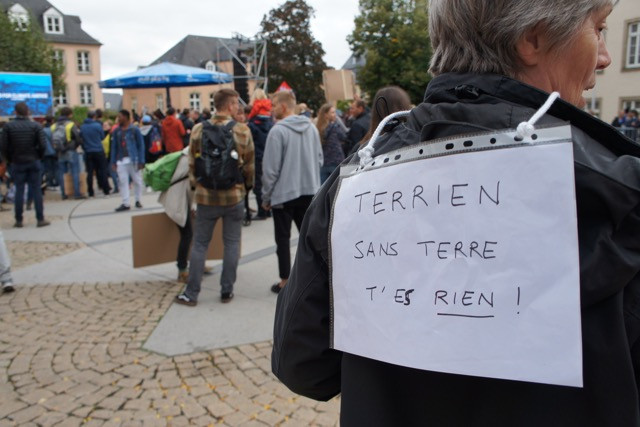The gathering, which bookended a week of coordinated global strikes and actions, set out from three different locations in the capital--in Hollerich, the Gare and Kirchberg, with protestors beating drums and waving placards before meeting in the city centre where organisers gave speeches and Palmer sang a song.
Among the supporters were Pierre Moos, a Luxembourger who founded the Cent Buttik, a grocery solution for low-income households and who hopes to eradicate single-use plastic in the country. “It’s easier for us to change than the climate,” he told Delano before starting the march. “We can change our habits in the next 10 to 15 years.”
For retired EU worker Edward, the march was only the second time he had participated in a demonstration. “We’ve come to express solidarity with everyone else, especially young people whose future is at stake,” he explained.
Many of the people Delano spoke to mentioned the word “solidarity”. “I want to show there are adults who care,” Outi said. “My son did the climate march last week, this week I said it’s my turn.”
Lycée des Arts et Métiers teachers Jean-Claude Feltes and Marc Mootz, who came by bike, had also participated in the student-only march that took place the Friday before. “We found it very important to put pressure on the politicians because they have no power any more since they adopted free market, they leave it up to the market since the 1990s,” Feltes said.
Paul, a Dutch national, and Elizabeth, a Dane, said they took time off work to participate in the demonstration. Elizabeth, who has dedicated much of her career to combating climate change, said it was even more important now to take action. She was also a big supporter of Greta Thunberg, the Swede, whose Fridays 4 Future movement is credited with mobilising regular student protests around the world to push for bolder steps to tackle the growing climate crisis. “I’m as radical as Greta, she’s more outspoken than I’ve ever been. It’s impressive, I think you need to be very radical in the way we change our way of living,” Elizabeth said.
The demonstration was coordinated by a handful of environmental, social organisations and unions in the country. A young speaker listed the combined demands on the Luxembourg government as follows:
- Luxembourg must achieve carbon neutrality by 2030 and run on 100% renewable energy by 2040;
- Luxembourg must take a stand against global tax evasion and stop all the fossil fuel investment;
- Climate justice means international and intergenerational solidarity. The climate crisis hits the south and the young generations first. Luxembourg must support the victims.
Amanda Palmer was in the country as part of her European tour. During her speech, she called on the gathered crowd to become artists and to use their “unique voice” to share their stories and bring change. “This is just the beginning. Don’t give up!” she urged them.
At 5:30pm the square rang out with church bells, a sound that was echoed around the country in an apparently coordinated symbolic feat. Afterwards, a delegation of five indigenous people from the Argentinian Andes spoke about how, thanks to support from a Luxembourg not-for-profit, they had been able to reclaim ancestral territory confiscated by local government.
